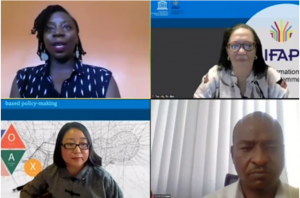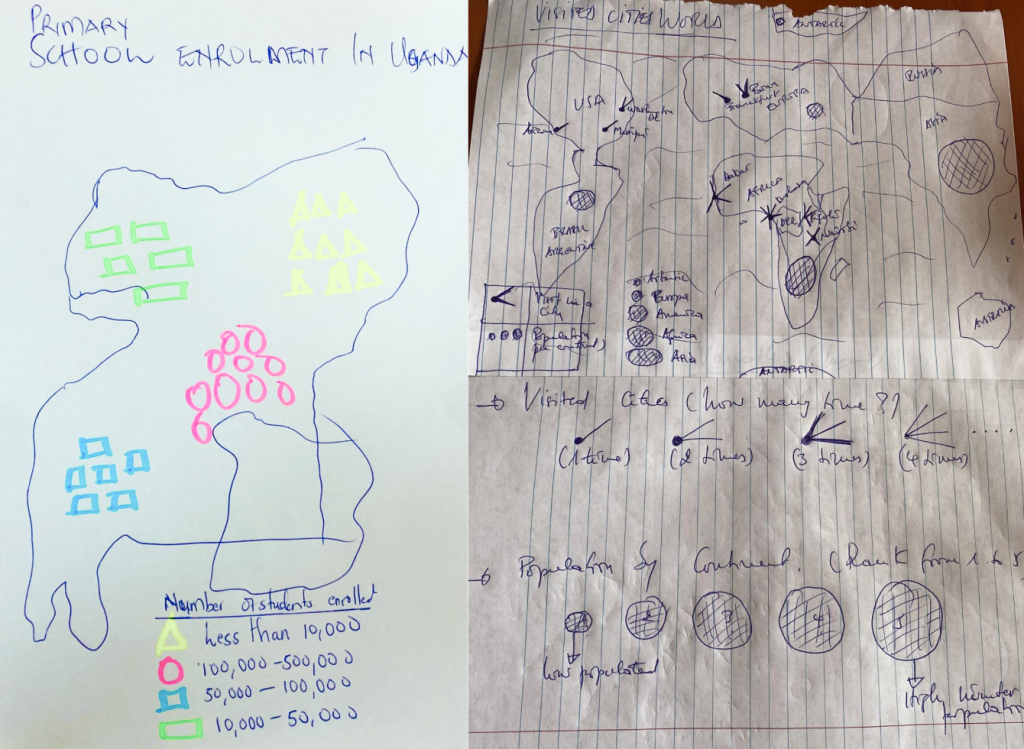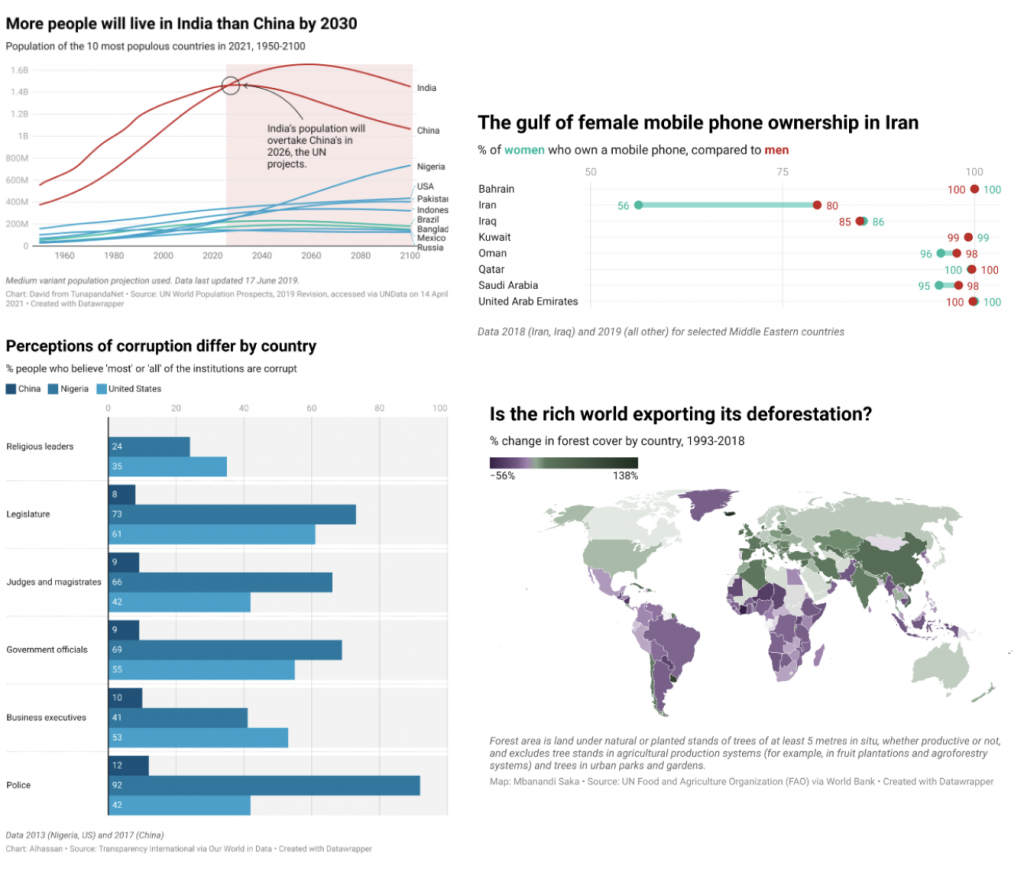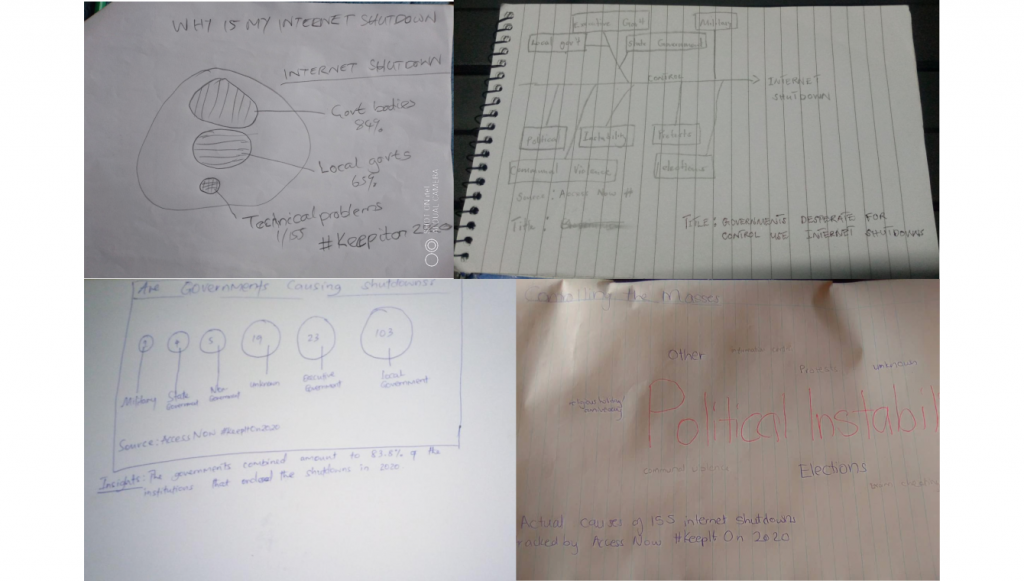By Data4Change |
“Numbers? Yes, but I was never very good at maths.”
“Data? Sure, but I don’t know how to use spreadsheets.”
Mathematical anxiety is real. These expressions are often heard from people who think data isn’t for them. For advocates, data-driven storytelling and investigations can support powerful campaigns to raise awareness and engage relevant stakeholders. Data4Change has designed an immersive and practical introduction to using data for advocacy. Dubbed DataBytes, the four-week remote programme shows data advocacy is for everyone, and that sometimes all you need is a pen and paper.
Image: Visual prototypes designed by participants in the Sketch a Data Story workshop
DataBytes itself uses a unique data-led approach. In the preparatory stage, participants take a Data Personality Quiz and chat with “Dot the Bot.” The data generated through these two activities helps the Data4Change facilitators understand the key strengths and potential areas of work for each specific participant.

Image: Data4Change’s quiz calculates a data personality type for respondents
DataBytes was piloted by Data4Change and the Collaboration on International ICT Policy for East and Southern Africa (CIPESA) as part of institutional capacity building efforts under the Africa Digital Rights Fund (ADRF). The ADRF provides rapid response and flexible grants to initiatives advancing digital rights in Africa.
Targeting grantees of the fifth round of ADRF, the programme combined interactive questionnaires, games, offline self-study courses and live sessions (with simultaneous translation to French) to boost data confidence among participants.
“Numbers help understand the urgency and magnitude of the problem. It helps to legitimise our advocacy and creates more impact in our reporting” – DataBytes participant
The 16 participants, representing nine countries – the Democratic Republic of Congo, Kenya, Malawi, Sierra Leone, Somalia, South Africa, Tanzania, Togo and Uganda – gained hands-on experience in getting, cleaning, understanding and communicating with data.
Participants also learned to read datasets and develop data communication techniques as they produced their own bar and line charts, range plots, choropleth maps and scatter plots to uncover trends and patterns.
Image: A selection of charts created in Datawrapper by DataBytes participants
The programme closed with a much-needed conversation around Data Values and Data Ethics which explored the issues of data extractivism, real consent, and the ethics around data collection and processing. These complex topics were interrogated through a game of “Fortunately, Unfortunately” where participants collaboratively analysed possible scenarios where data collection ethics could be at stake.
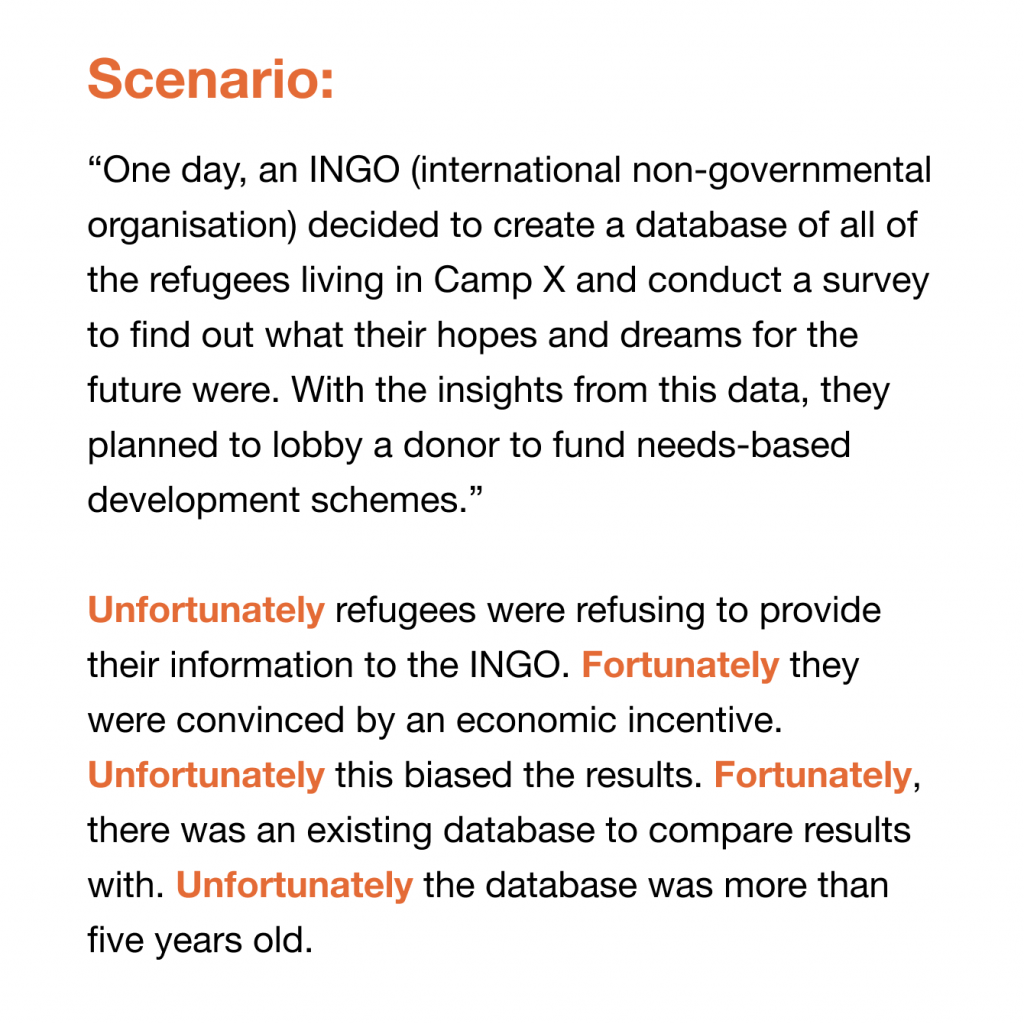 Image: One of the “Fortunately, Unfortunately” scenarios created by DataBytes participants
Image: One of the “Fortunately, Unfortunately” scenarios created by DataBytes participants
The DataBytes programme builds on earlier joint efforts by CIPESA and Data4Change in strengthening data advocacy among digital rights actors in Africa. Previous efforts, targeted at the first and second round of ADRF grantees, featured capacity assessments followed by data workflow and visualisation workshops – foundational and advanced levels. Two ADRF grantees – the Mozambique Disabled Person’s Organisation (FAMOD) and Digital Shelter – went on to be supported to develop data-driven campaigns. FAMOD’s campaign promotes web accessibility for persons with disability in Mozambique, while that of Digital Shelter is on women’s inclusion and safety online in Somalia.
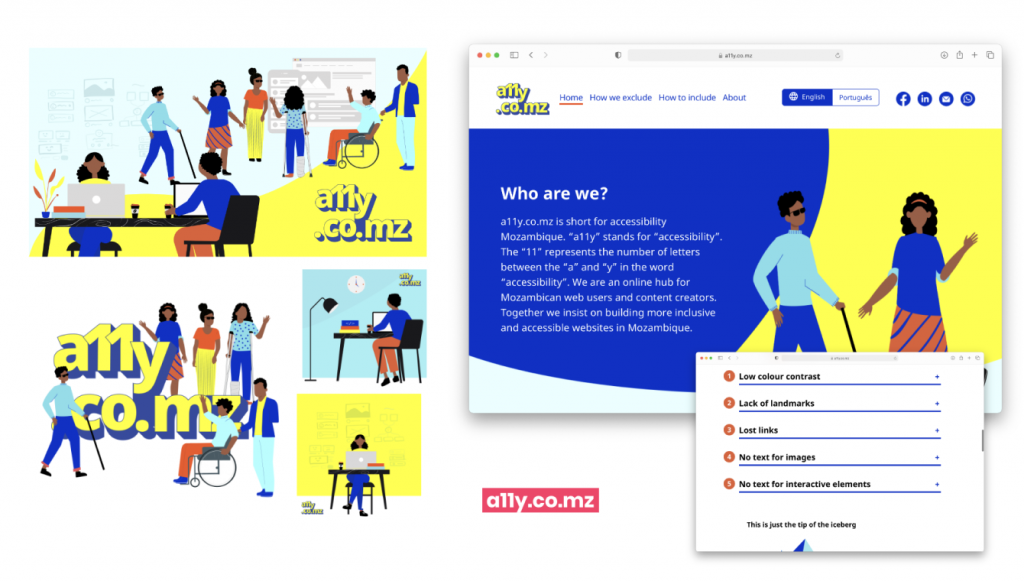
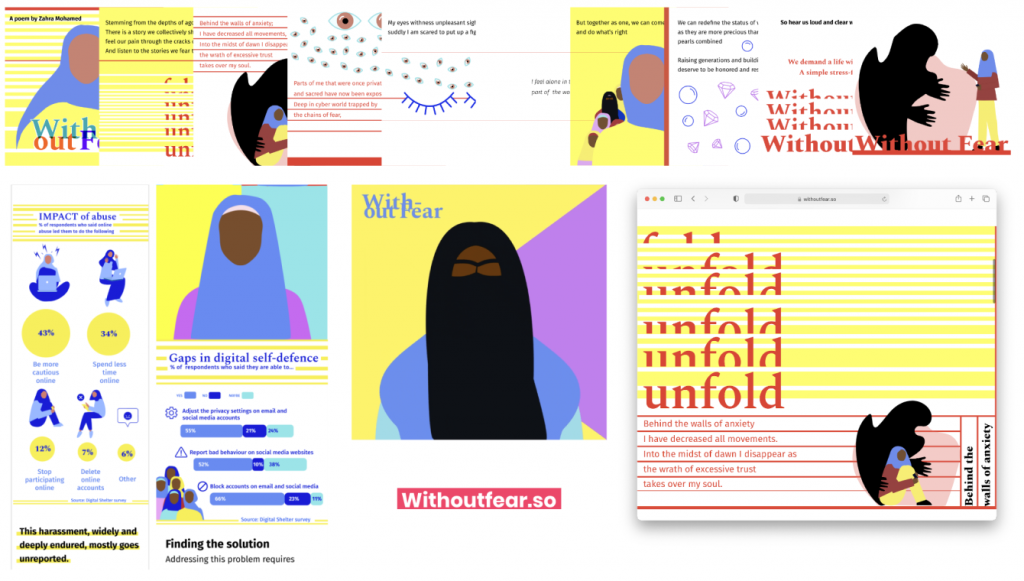 Images: A selection of screenshots from campaigns co-created with FAMOD and Digital Shelter
Images: A selection of screenshots from campaigns co-created with FAMOD and Digital Shelter
Furthermore, CIPESA and Data4Change conducted a data-driven Sketchathon for digital rights at the 2021 Forum on Internet Freedom in Africa (FIFAfrica) targeting actors in Lesotho, Mozambique, Tanzania, Uganda, Zambia, and Zimbabwe.
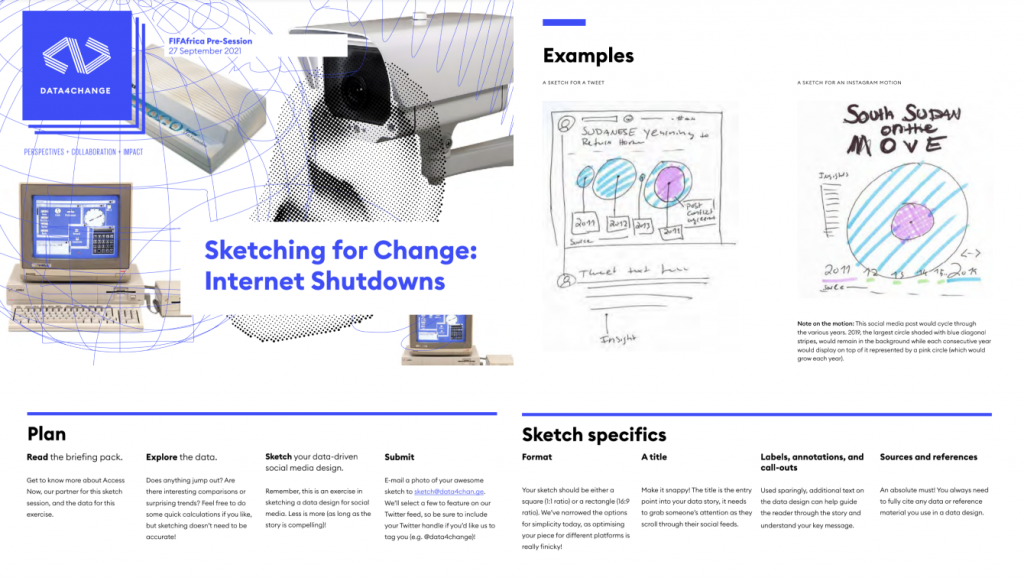 Image: The cover of the Sketching Shutdowns workbook
Image: The cover of the Sketching Shutdowns workbook
Image: Sketches created during the Sketching Shutdowns Workshop

